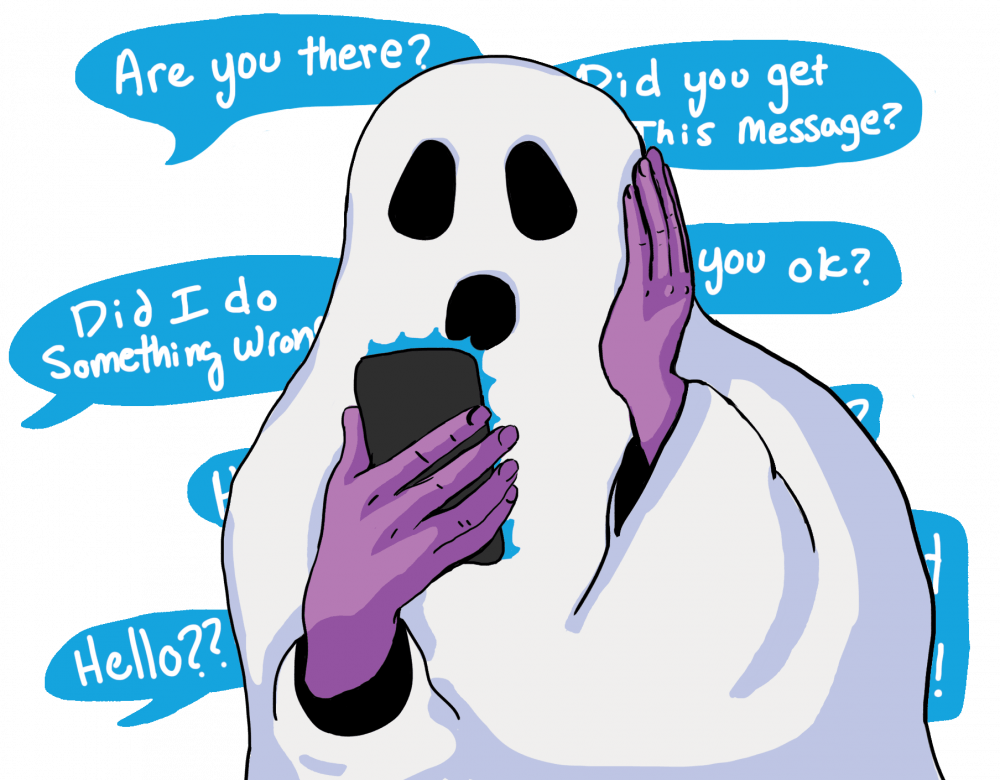The Psychology of "Ghosting": Why People Disappear
We’ve all been there—suddenly, someone you were talking to, dating, or even friends with just disappears without a word. No text, no call, no explanation. It’s like they’ve vanished into thin air. This phenomenon is known as "ghosting," and while it might sting, it's also a window into some interesting psychological dynamics.
So, why do people ghost? Let’s dive into it and break it down.
1. Fear of Conflict: The "Easiest" Way Out
One of the most common reasons people ghost is that they want to avoid confrontation. It’s human nature to want to keep things peaceful, especially when you’re not sure how to end things without hurting someone’s feelings. Maybe they’ve lost interest, or perhaps something just isn’t clicking, but rather than having the uncomfortable "we need to talk" conversation, they opt for the path of least resistance—ghosting.
Example: Let’s say you’ve been texting someone for a while, but they suddenly stop responding. A week passes, and you feel confused. In their mind, they might have been thinking, "I don’t want to hurt this person by telling them it’s not working out," so they just stop replying, hoping the situation will fade away quietly.
2. Anxiety and Avoidance: Playing It Safe
Ghosting can also be a defense mechanism. If someone has high social anxiety or fears rejection, they may ghost because they want to avoid an uncomfortable or awkward situation. The idea of facing a difficult conversation can trigger anxiety, and so instead of dealing with their feelings or the other person’s reaction, they just disappear.
Example: You meet someone new and instantly hit it off. You’re excited to get to know them better, but then, as the relationship progresses, anxiety sets in. Maybe they’re moving too fast or asking for more than you're ready to give. Instead of saying, "I need some space," they shut down completely and stop communicating.
3. Self-Protection: The Emotional Baggage Game
Ghosting can also stem from emotional baggage. If someone has been hurt in the past—whether from a breakup, rejection, or emotional abuse—they may develop a coping mechanism where they emotionally shut down and withdraw. Ghosting, in this case, is a form of self-protection. It's easier to disappear than to risk being vulnerable again.
Example: Think about a person who’s been hurt in a previous relationship. They start talking to someone new, but every time things seem to be getting serious, they get overwhelmed with the fear of being hurt again. So, instead of facing their feelings and confronting the situation, they ghost, hoping that by disappearing, they won’t be forced to relive the emotional pain.
4. Convenience: Ghosting as a Shortcut
Sometimes, ghosting is just about convenience. People are busy, distracted, or simply don't want to invest energy into a relationship or friendship that doesn’t seem worth the effort. Rather than explaining that they’re not interested or that their life is too busy, they simply stop responding. It’s not necessarily malicious—it’s just a quick and easy way out.
Example: You meet someone at a party and have a great conversation. They ask for your number, and you exchange texts for a few days. But as the days go by, they get caught up in work, social life, and just general distractions. Instead of sending a polite message like, "Hey, I’ve been busy, but I’m not really feeling a connection," they just stop texting, because, for them, it's simpler than confronting the situation.
5. Lack of Emotional Intelligence: Not Understanding the Impact
Some people ghost because they simply don’t understand how hurtful it can be. They may not have developed the emotional intelligence to understand the impact of their actions on others. For these individuals, ghosting might not feel like a big deal—after all, they’re not "technically" doing anything wrong in their eyes. But it doesn’t change the fact that it leaves the other person feeling confused, rejected, and unsure of what happened.
Example: Imagine a friend who suddenly stops hanging out with you after months of close friendship. They don’t think twice about it and assume you’ll get the message. However, you’re left wondering what happened, feeling like something’s wrong with you, when in reality, they just didn’t realize that their actions had a lasting effect on you.
Wrapping Up: What We Can Learn from Ghosting
While ghosting can feel personal, it’s important to remember that it’s often more about the person doing the ghosting than the one being ghosted. Whether it’s due to fear of confrontation, anxiety, past emotional wounds, or simply the desire to avoid discomfort, ghosting is a coping mechanism that allows the individual to avoid confronting their own feelings or the other person’s.
If you’ve been ghosted, it’s important to not take it too personally. It says more about their emotional state or ability to communicate than about your worth as a person. On the flip side, if you find yourself ghosting someone, it might be helpful to pause and think about the emotional impact of your actions.
Ultimately, open communication is key. It may not always be easy, but letting someone know how you feel—whether you’re ending things or need space—helps both parties move forward without the confusion and hurt that ghosting often leaves behind.
Have you ever experienced ghosting or ghosted someone yourself? What do you think is the real reason behind it?






Comments